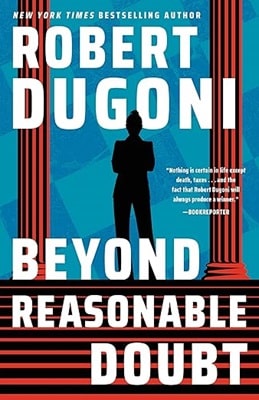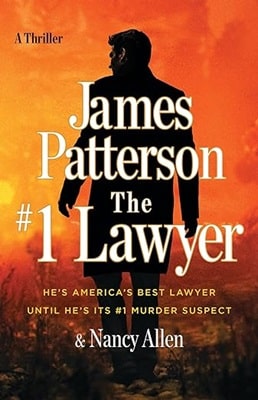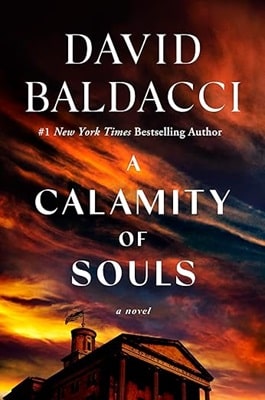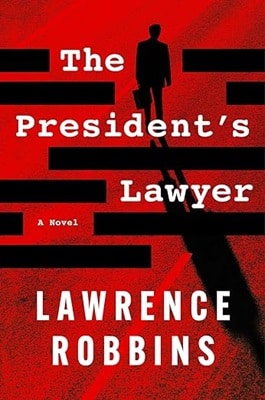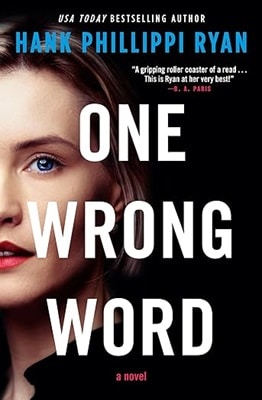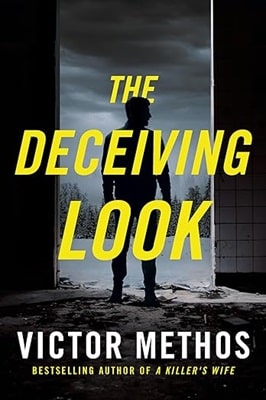
What Makes a Legal Thriller
The term “legal thriller” is used broadly, encompassing both mystery and suspense stories that feature a lawyer as the protagonist. Mysteries featuring lawyers have been popular for decades.
Perry Mason’s creator, Erle Stanley Gardner, became one of the bestselling authors of all time. His Perry Mason stories are classic mysteries where the loose ends are neatly tied up and the guilty party always caught and punished. The plots follow a simple formula: an accused man hires Mason to defend him against a serious charge, usually murder; Mason and his private detective Paul Drake conduct a pretrial investigation that raises questions about the client’s guilt; then Mason tears apart the prosecution witnesses at trial with the guilty party eventually breaking down on the stand and confessing. Realistic? No, but compelling enough to make Perry Mason a name most Americans still recognize today.
After a few decades of sporadic bestsellers, the legal thriller was revitalized by the publication of Scott Turow’s Presumed Innocent in 1987. Turow’s story of a prosecutor charged with murdering his former lover took the mystery legal thriller to a higher level. Although Turow’s portrayal of realistic characters set Presumed Innocent apart from most mystery fiction, his ability to create a compelling plot with these characters made the book a blockbuster page turner. By having the accused murderer Rusty Sabich narrate the story, Turow was able to create tension throughout. The reader is never sure until the end whether Sabich is guilty.
Four years later a blockbuster suspense legal thriller hit the bestseller lists with publication of John Grisham’s The Firm. Unlike a mystery, the driving force of a suspense novel is not “whodunit.” Although legal thrillers may contain elements of both the mystery and suspense genres, generally in a suspense novel the guilty party is known early on. A suspense novel asks, “How will the protagonist get himself out of this difficult situation?” There is usually a threat on the life of the protagonist, and often multiple chases with different groups chasing either the protagonist or each other. A heavy sense of paranoia hangs over the suspense novel. In The Firm, Grisham raises the stakes to the highest level. Innocent young lawyer Mitch Deere discovers his new firm is controlled by the Mafia. Soon the FBI gets involved and the lawyer does not know who to trust as he runs away from everyone.
Point of View
With the advent of broad discovery in both civil and criminal litigation, the chances that a lawyer will be surprised at trial are low. When the lawyer serves as narrator, therefore, he or she will generally know what all witnesses will say at trial. If it’s too realistic, however, then chances are it will be deadly dull.
Legal thrillers written in third person allow the author more flexibility to develop several aspects of the plot. In addition to showing the lawyer protagonist preparing for trial, the author can also show the opposing lawyer, the police, other bad guys, even the trial judge. These various strands can be woven to develop the plot to a climax at trial. Information can be withheld from the reader that the protagonist reveals only at trial. Alternatively, information can be withheld from the protagonist that the readers know. For example, the reader may know ahead of time that a particular witness will change her story at trial. The story is propelled by whether the lawyer will uncover the lies, and then how will he or she deal with them.
Suspense legal thrillers typically use third person point of view. The author can alternate between scenes of the protagonist running for his life to scenes of the bad guys chasing him. Tension builds as the bad guys close in on the protagonist. Even though the protagonist may not know how close he is to being captured or killed, the reader knows. John Grisham is a master of this technique, which he used to good effect in The Firm, The Pelican Brief, and other books.
Criminal vs. Civil
Most legal thrillers focus on criminal rather than civil cases. Criminal cases present clear lines between good guys and bad guys. The public has a general understanding of criminal law, so the author does not have to explain what murder or rape are. In contrast, a civil case often involves the alleged violation of complex laws like strict product liability, negligence, or discrimination. Barry Reed’s The Verdict focuses on a medical malpractice trial to good effect. The stakes are always high in a criminal case: the liberty or life of the defendant. In a civil case the stakes are usually money, but even a lot of money does not pose as great a risk as in a criminal case.
Conflicts of Interest
Many legal thrillers rely on conflicts of interest among different characters. Generally, the conflicts are due to family relationships. For example, in Degree of Guilt, the accused is defended by her former lover and father of her son. In Michael Eberhardt’s Against the Law, the suspected assassin of the Governor of Hawaii is Peter Maikai, godfather of the prosecuting attorney. In Martini’s Compelling Evidence, attorney Paul Madriani defends his ex-lover, who is accused of murdering her husband. One of the most intriguing conflicts occurs in Phillip Friedman’s Reasonable Doubt, where the defense lawyer defends his former daughter-in-law accused of brutally murdering his son.
Reality
One of the elements that distinguishes legal mysteries from traditional detective stories is the adherence to reality. Most real detectives do not act the way Sam Spade or Spenser do, shooting, fighting, flouting the law. Readers do not pick up detective fiction, however, for realist portrayals of the lives of detectives. Unlike detectives, lawyers work in a world proscribed by strict rules and procedures. While the ethical rules of detectives may not be known by lay readers, most readers know that a lawyer cannot take a case where the lawyer’s interest conflicts with the client’s.
Anyone who’s read trial transcripts knows that the way people talk can be sleep-inducing. Trials are slow, tedious, often dull proceedings. Certainly, there are moments of high drama and these need to be accentuated in fiction. The best legal thrillers strike a balance between realism and drama. Too far a break from realism may lose the reader; too little drama may bore the reader. Sheldon Siegel’s Last Call effectively achieves this balance by presenting effective trial scenes with a surprise ending.
Endings
Mystery legal thrillers often end with a jury verdict where the truth is revealed. Presumed Innocent, however, never went to verdict since the judge dismissed the case during trial. But the story did not end there either since the murderer had to be revealed. By contrast, suspense legal thrillers often end in a series of violent scenes, many deaths, multiple threats on the protagonist’s life, and narrow escapes such as in The Firm. The bad guys are revealed and thwarted.
As with traditional detective fiction, legal thrillers often end with the lawyer protagonist vindicated and justice achieved.
About the Author
Former trial lawyer Stephen M. Murphy is the author of the Dutch Francis legal thriller series. A Boston native, he is a graduate of the College of the Holy Cross in Worcester, Massachusetts, and the University of San Francisco School of Law. He served as a law clerk to the justices of the New Hampshire Superior Court, and while in New Hampshire, worked on a murder trial that inspired his first Dutch Francis novel, Alibi, which was followed by About Power, and the soon-to-be-released Abiding Conviction. He currently lives in the San Francisco area. Visit his website at stephenMmurphy.com.

Legal Thriller Features
Historical Legal Thrillers
A testament to history and the relentless pursuit of justice
The Gavel and the Thriller
The Inescapable Judges of Legal Thrillers
Twists in Legal Thrillers
The importance of the twist in a legal thriller




